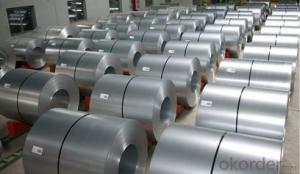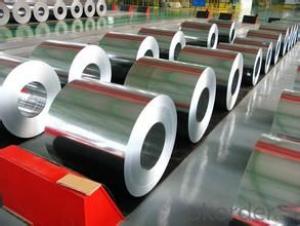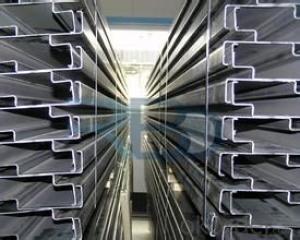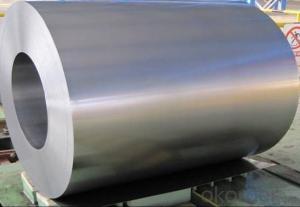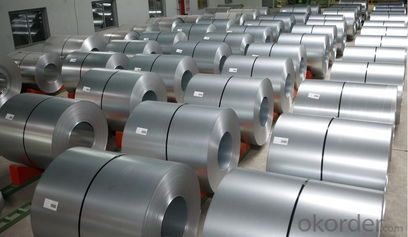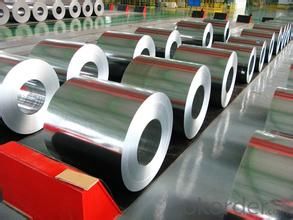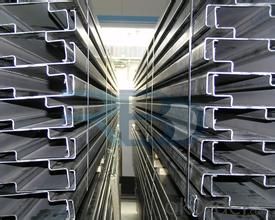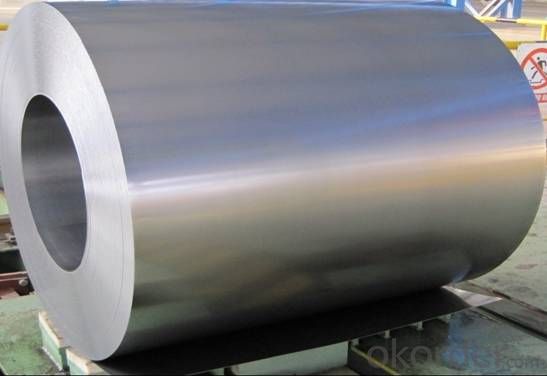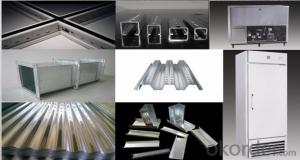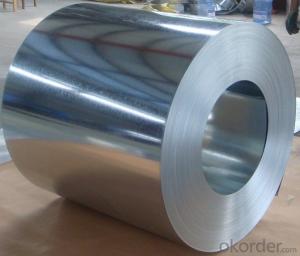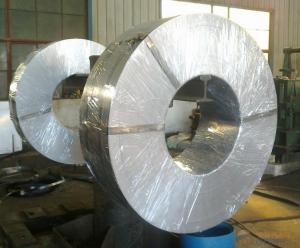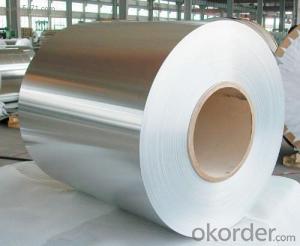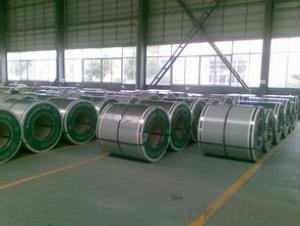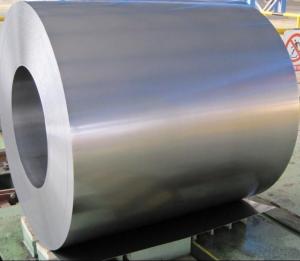Hot-dip Zinc Coating Steel Building Roof Walls With Best Price Best Quality
- Loading Port:
- China main port
- Payment Terms:
- TT OR LC
- Min Order Qty:
- 50 m.t.
- Supply Capability:
- 10000 m.t./month
OKorder Service Pledge
OKorder Financial Service
You Might Also Like
Hot-dip Zinc Coating Steel Building Roof Walls With Best Price Best Quality
1.Structure of Hot-Dip Galvanized Steel Sheet Description:
Hot-dip galvanized steel coils are available with a pure zinc coating through the hot-dip galvanizing process. It offers the economy, strength and formability of steel combined with the corrosion resistance of zinc. The hot-dip process is the process by which steel gets coated in layers of zinc to protect against rust. It is especially useful for countless outdoor and industrial applications. Production of cold formed corrugated sheets and profiles for roofing, cladding, decking, tiles, sandwich walls, rainwater protective systems, air conditioning duct as well as electrical appliances and engineering.
2.Main Features of the Hot-Dip Galvanized Steel Sheet:
• Excellent process capability
• Smooth and flat surface
• Workability, durability
• Excellent anticorrosive property
• High strength
• Good formability
• Good visual effect
3.Hot-Dip Galvanized Steel Sheet Images
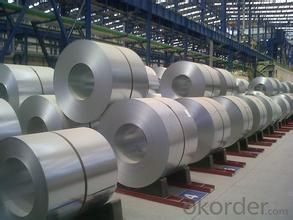
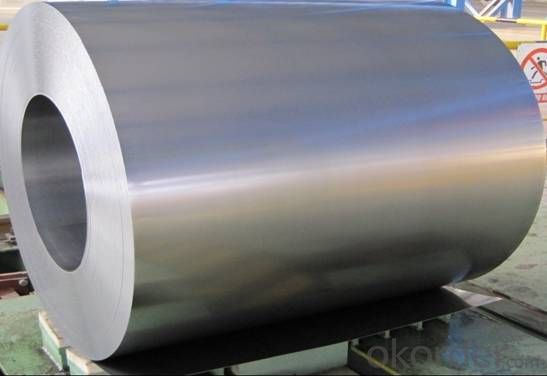
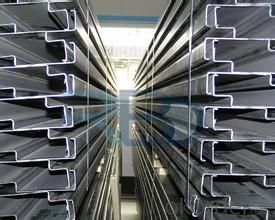
4.Hot-Dip Galvanized Steel Sheet Specification
Standard: ASTM, JIS,EN
Grade: CS, DX51D+Z,SGCC, SS 230~550,S220GD+Z~S550GD+Z, SGC340~SGC570
Thickness: 0.18mm~5mm
Width: max 2000mm
Coil weight:3-12 MT
Coil ID:508/610mm
Surface structure: zero spangle, regular spangle or minimum spangle
Surface treatment: Chromate treatment, Oiled/dry, skinpassed/non-skinpassed
Packing: Standard seaworthy export package
Technology test results:
Processability | Yield strength | Tensile strength | Elongation % | 180°cold-bending |
Common PV | - | 270-500 | - | d=0,intact,no zinc removal |
Mechanical interlocking JY | - | 270-500 | - | d=0,intact,no zinc removal |
Structure JG | >=240 | >=370 | >=18 | d=0,intact,no zinc removal |
Deep drawn SC | - | 270-380 | >=30 | d=0,intact,no zinc removal |
EDDQ SC | - | 270-380 | >=30 | d=0,intact,no zinc removal |
5.FAQ of Hot-Dip Galvanized Steel Sheet
We have organized several common questions for our clients,may help you sincerely:
1.How to guarantee the quality of the products?
We have established the international advanced quality management system,every link from raw material to final product we have strict quality test;We resolutely put an end to unqualified products flowing into the market. At the same time, we will provide necessary follow-up service assurance.
2. How long can we receive the product after purchase?
Usually within thirty working days after receiving buyer’s advance payment or LC. We will arrange the factory manufacturing as soon as possible. The cargo readiness usually takes 15-30 days, but the shipment will depend on the vessel situation.
- Q: How are steel coils used in the production of kitchen appliances?
- Steel coils are used in the production of kitchen appliances as they are transformed into various components such as panels, frames, and structural elements. These coils are typically cut, shaped, and formed to create the necessary parts for appliances like refrigerators, ovens, and dishwashers. The high strength and durability of steel make it an ideal material for these appliances, ensuring their longevity and reliability.
- Q: explain what happen if carbon steel is exposed to an oxygen rich atmosphere at elevated temperature inside a furnace.
- Assuming the steel isn't actually melted, two things will happen. First, a layer of iron(ii) oxide, FeO will slowly develop on the surface, getting thicker over time. This layer is usually poorly bonded to the metal surface, it tends to flake off, exposing fresh metal. This is known as mill scale, it's also known as wustite which is the mineral term. Second, the surface of the steel will become decarburized, essentially becoming pure iron, not steel. The depth of the decarburized layer depends on the temperature, time, and the diffusivity of carbon in the steel at the given temp. This has some implications to engineering, in hot-rolling or forging of steel shapes for example. It's often the case that the stress and strain in a material is greatest at or near the surface. Therefore the weakened, decarburized layer at the surface may have a much greater detrimental effect on the steel's performance than might be expected. In a more specific example, die and tool steels depend on their carbon content for their strength and wear resistance, Therefore if such steels are heated in an oxidzing atmosphere, wear resistance is totally destroyed: The thin decarburized iron layer will be extremely soft and malleable.
- Q: What are the different types of steel coil storage methods?
- There are several different types of steel coil storage methods, including vertical stacking, horizontal stacking, coil cradles, and coil racks.
- Q: How are steel coils used in the manufacturing of industrial conveyors?
- Steel coils are used in the manufacturing of industrial conveyors as they provide the necessary strength and durability required to support heavy loads and withstand the rigors of continuous operation. The coils are typically formed into various components, such as frames, rollers, and supports, that make up the conveyor system. By utilizing steel coils, manufacturers can ensure a reliable and efficient conveyor system that can handle a wide range of materials and processes in industrial settings.
- Q: does regular steel rust? or is it all the same.
- Steel is an alloy of Iron and Carbon. The more carbon you put in, the harder the steel and the more rust resistant. Steel will rust because it is not coated, like stainless is.
- Q: What are the common coil thickness tolerances?
- The common coil thickness tolerances can vary depending on the specific industry and application. However, typical tolerances for coil thickness range from +/- 0.001 inches to +/- 0.005 inches.
- Q: How do steel coils contribute to the water and wastewater industry?
- Steel coils contribute to the water and wastewater industry by being used in the construction of pipes, tanks, and other infrastructure. These coils provide strength, durability, and corrosion resistance, ensuring the integrity and longevity of water and wastewater systems. Additionally, steel coils are often utilized in the manufacturing of water treatment equipment and machinery, helping to improve the efficiency and effectiveness of the water and wastewater treatment processes.
- Q: How are steel coils used in the production of telecommunications equipment?
- Steel coils are used in the production of telecommunications equipment for various purposes, such as creating structural components, housing enclosures, and mounting brackets. The steel coils are often shaped, cut, and formed into different parts that provide strength, durability, and support to the equipment. Additionally, steel coils may be used in the manufacturing of antennas, transmission towers, and other infrastructure elements that are crucial for telecommunications networks.
- Q: The steel is orangish in colour and is mostly made of copper
- Steel is an alloy of iron and carbon and optionally one or more of numerous other materials. Copper is normally not used, except sometimes in small percentages. Steel is never yellow or orange in color. Reactivity of steel depends on the materials it is alloyed with. Chromium and nickel with steel make stainless steel, which is much less prone to reactive than iron. .
- Q: What are the common coil storage conditions?
- The common coil storage conditions include storing coils in a dry and clean area, away from direct sunlight and extreme temperature variations, and ensuring proper ventilation to prevent moisture buildup. It is also important to stack the coils properly, avoiding any damage or deformations, and to label and organize them for easy identification and retrieval.
Send your message to us
Hot-dip Zinc Coating Steel Building Roof Walls With Best Price Best Quality
- Loading Port:
- China main port
- Payment Terms:
- TT OR LC
- Min Order Qty:
- 50 m.t.
- Supply Capability:
- 10000 m.t./month
OKorder Service Pledge
OKorder Financial Service
Similar products
Hot products
Hot Searches
Related keywords
